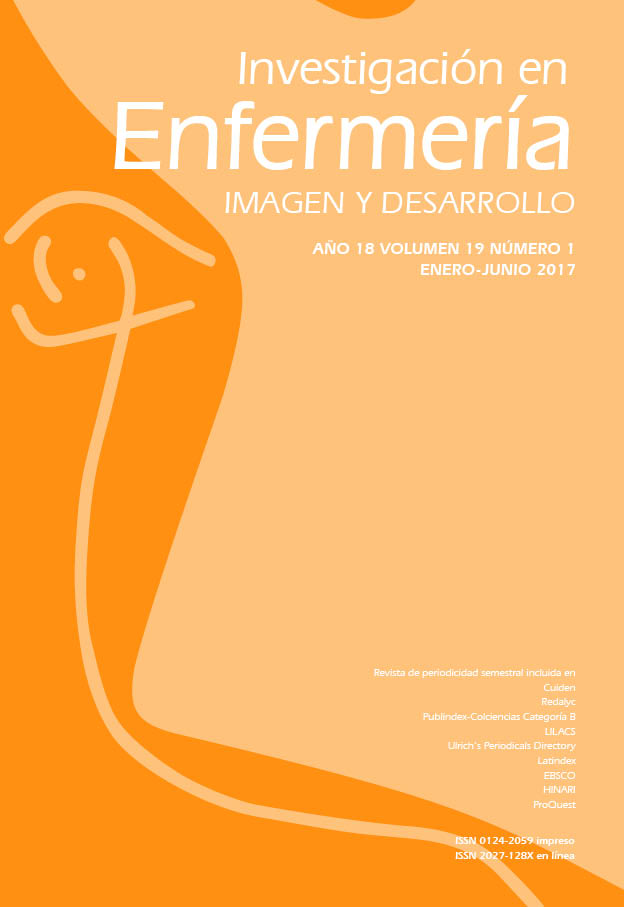Abstract
Objectives: To describe how the processes of reflective thinking emerge in the nurse student in face of clinical situations in their clinical practicum. Method: Qualitative research, hermeneutical-phenomenological made in the subject Hospital Practicum II
during the clinical practicum to eleven nursing students at a Faculty of Nursing and a University Hospital of Barcelona (Spain), from February 2011 to February 2012. The data collection strategies were: participant observation, non-participant observation, informal discussion, in-depth interviews and written materials. For the data analysis, the method of constant comparisons by Strauss and Corbin was applied. Results: The
emerging qualitative axis was: Convergence of meanings between student and nurse regarding competent nursing care; and the resulting metacategory was: thoughtful student thinking with subsequent categories: perceptiveness and consciousness regarding the needs of others; epistemological curiosity; operative care; anticipation: reflective conversation in action; and finally reflexive imitation. Conclusions: Deliberative observation, operational attention, reflective conversation about action and in it, epistemological curiosity and reflective imitation, emerge gradually and in accordance to the quality of continuity and the student interaction with the different elements of
their clinical practicum; these reflective processes foster in the student the opportunity to reflect, interpret and give meaning to their own practice.
The journal Investigación en Enfermería: Imagen y Desarrollo is registered under a Creative Commons Attribution 4.0 International Public License. Thus, this work may be reproduced, distributed, and publicly shared in digital format, as long as the names of the authors and Pontificia Universidad Javeriana are acknowledged. Others are allowed to quote, adapt, transform, auto-archive, republish, and create based on this material, for any purpose (even commercial ones), provided the authorship is duly acknowledged, a link to the original work is provided, and it is specified if changes have been made. Pontificia Universidad Javeriana does not hold the rights of published works and the authors are solely responsible for the contents of their works; they keep the moral, intellectual, privacy, and publicity rights.
Approving the intervention of the work (review, copy-editing, translation, layout) and the following outreach, are granted through an use license and not through an assignment of rights. This means the journal and Pontificia Universidad Javeriana cannot be held responsible for any ethical malpractice by the authors. As a consequence of the protection granted by the use license, the journal is not required to publish recantations or modify information already published, unless the errata stems from the editorial management process. Publishing contents in this journal does not generate royalties for contributors.


